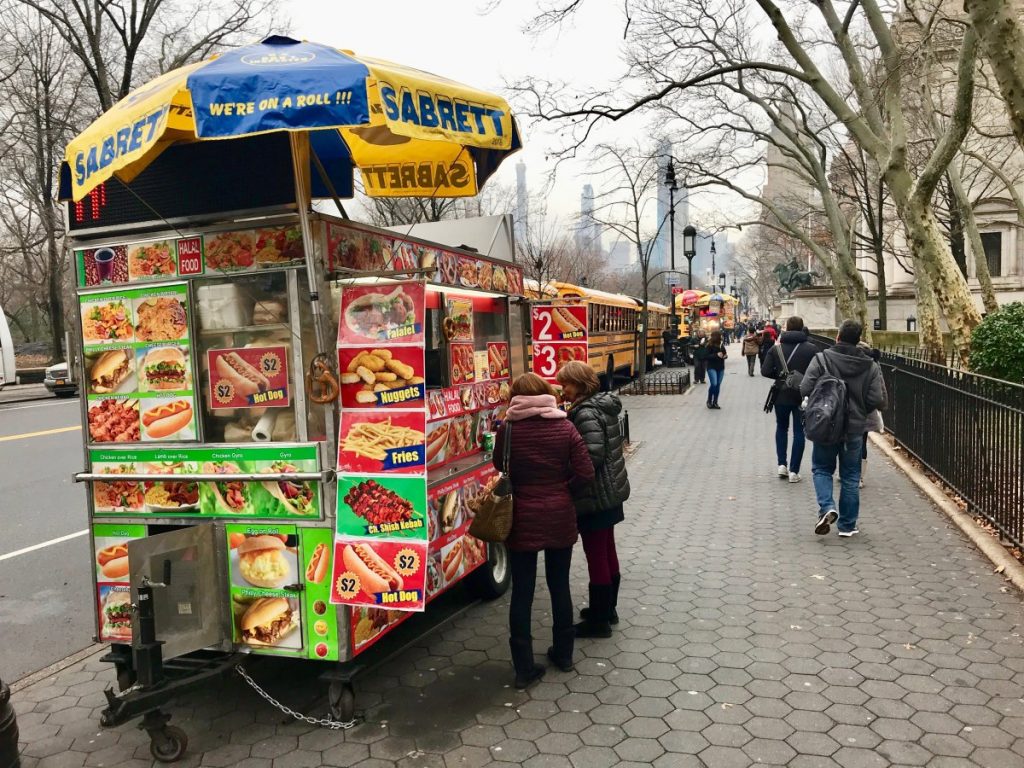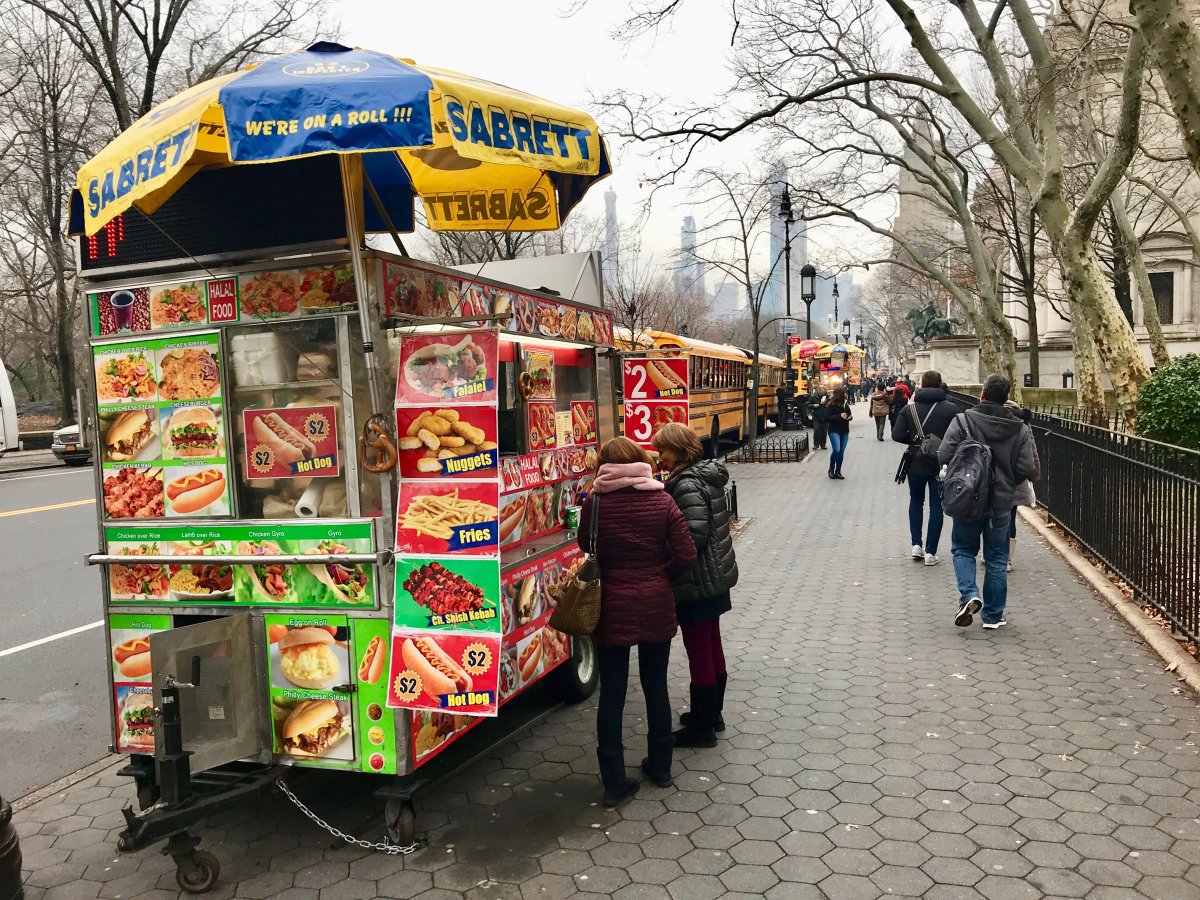
BY GABE HERMAN | Is that street meat clean to eat? Until now, New Yorkers could only wonder about the cleanliness of street food, or perhaps choose not to think about it at all. But the city has started a grading program for all 5,500 food carts and trucks across the boroughs, which will give out letter grades in a two-year process, similar to the rollout for restaurant letter grades in 2010.
The program started last month. In the announcement in November, Dr. Oxiris Barbot, the city Department of Health commissioner, said, “Letter grades on food carts and trucks will help New Yorkers see how these businesses fared on their latest inspection, right when they want to place an order. Just as diners appreciate letter grading in restaurants, we expect this program to be popular among customers of food carts and trucks.”
The idea of grading food carts and trucks has been supported by the industry. In 2017, Ben Goldberg, founder and C.E.O. of the New York Food Truck Association, said, “At the NYFTA, we think food trucks should be held to the same food-safety regulations as brick-and-mortar restaurants, not only including letter grades, but also addressing the onerous food-safety permitting process for food truck employees.”
The new D.O.H. program stems from a city law passed in 2017. The issue was also reviewed in the state Senate that year, and the Independent Democratic Conference, a group in the state Senate, released an analysis of city data from 2016 inspections of food carts and trucks that was not made public.
That report showed that eight vendors would have received the abysmal “C” health grade. Five of those eight were located in Manhattan, including four in Midtown and one on the Upper West Side.
Manhattan vendors were found to have the highest rate of health infractions, at 1.17 violations per inspection. Citywide, the most common violations included keeping foods at improper temperatures, not wearing a hair restraint and not keeping equipment clean.
The new program is facing some criticism, however, related to D.O.H. attaching a location-sharing device to every vendor’s cart or truck, which the department said will be used to find vendors when inspection time comes.
The advocacy group Street Vendor Project tweeted after the announcement, “While vendors getting letter grades is good for everyone, tracking vendors’ movements with GPS devices could have severe consequences for our mostly immigrant communities.”
The Health Department said it will delete location data within 24 hours, “protect data during transmission and storage,” and only request location data at the time of inspection.
The department said it will hold workshops in the coming months for food vendors about the new grading process and how to handle food properly and avoid violations.
The vendor-grade law’s prime sponsor, Councilmember Karen Koslowitz, said when the program was announced, “New York is known around the world for the amazing diversity of its street food, ranging from halal hot dogs to curry in a hurry. But everyone celebrating that diversity has a right to know that it meets uniform health standards, and the Health Department is right to implement a letter grading system for food carts and trucks to help assure that those standards are met.”





































